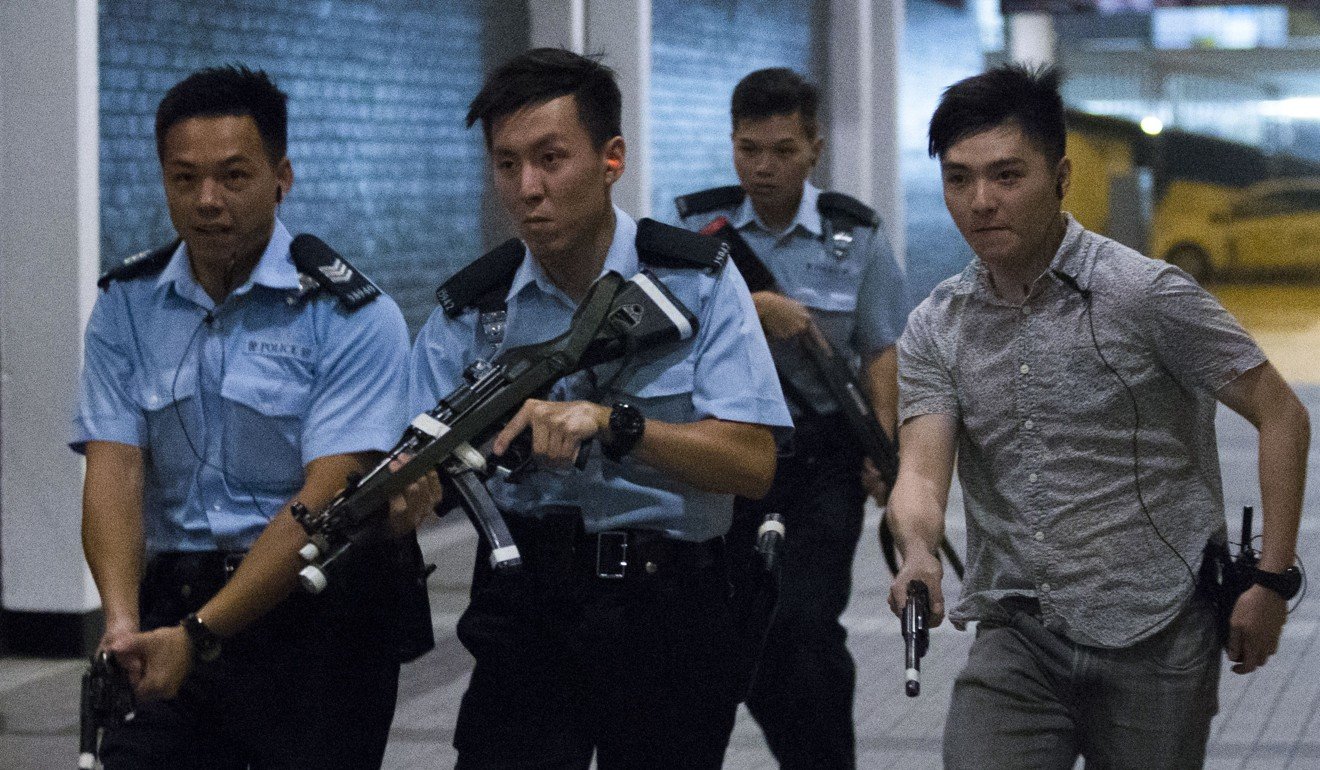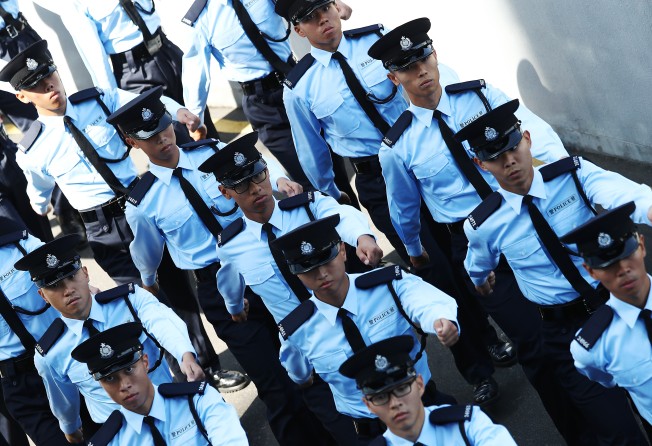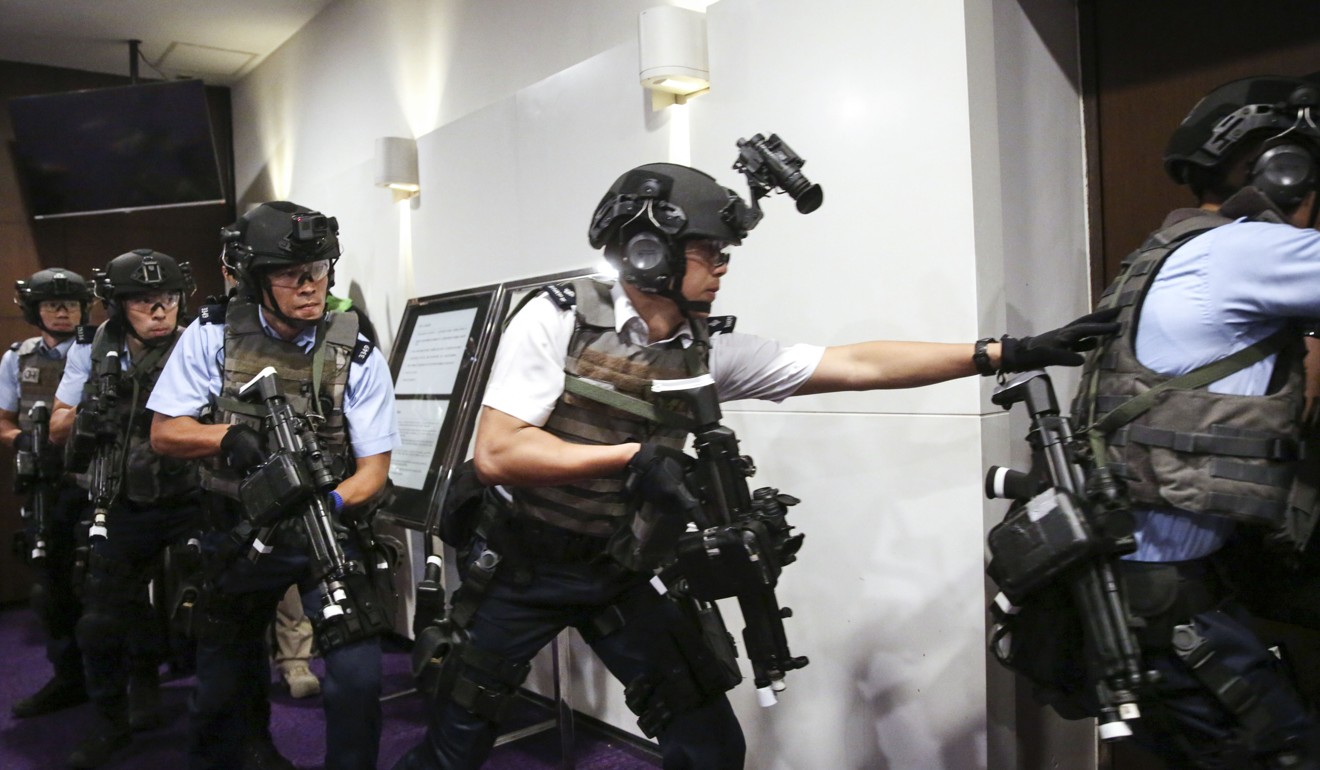
Why Hong Kong needs a brand new police force for a 21st century China
As the last expats in the city’s law enforcement head for the exit, Niall Fraser asks if Hong Kong requires a policing revolution to create a lean and keen crime-fighting force

Given that the name of my local pub in Sai Kung is The Duke of York, it is perhaps not surprising that a British tourist on his maiden visit to Hong Kong engaged me in conversation as I sat at the bar nursing a contemplative beer.
He was full of all the usual questions, which I answered dutifully but with barely disguised boredom hoping he would take the hint and leave me alone. But no, this one had been at the front of the queue when the persistence pills were dished out.
Sensing my irritation at being dragged into his quest to discover what makes today’s Hong Kong tick, he went for broke: “OK, OK … if this place was a bloke you know quite well, how would you sum up his personality?”
Straight away and with a confidence only three or four pints provides, I said: “He’s the sort of bloke who could start a fight in an empty house.”
And with that he drained his pint, shook my hand and moved on to his next victim, who, it quickly became clear, was less accommodating. It wasn’t long before I had to pull them apart as nose-to-nose finger jabbing threatened to escalate into physical violence.

In more than 25 years of determined socialising I can count on the fingers of one hand such flare-ups I have witnessed in this city of seven million or so souls, solid evidence that Hong Kong is – as we are regularly told by the authorities – one of the safest cities in the world.
Taking official statistics at face value, there is no doubt that in terms of crimes involving actual physical violence, compared with many other places, Hongkongers are impressively “safe”. Take a bow the men and women of our police force and related crime-fighting agencies.
But safe from what? From who? For how long? And, most importantly, who is going to keep us safe and how?
A clue could be in the recent news that the government’s Security Bureau is planning a new pan-agency anti-terrorism task force, which, as the Post reported, would see “hundreds of officers from immigration, customs and correctional services …’’ (and presumably if the thing is to be fit for purpose, the police force and Independent Commission Against Corruption) “ … work together to boost Hong Kong’s preparedness and capability in light of global terror threats and attacks’’.
The move, according to a “senior government source”, would address “communication gaps and fragmented intelligence gathering”. In a land that knows its kites, is it just me who can see one being flown here?
Interdepartmental turf wars, clear-up rate demands and budgetary battles notwithstanding, perhaps it is time for Hong Kong to consider going the whole hog and completely re-organising its crime-fighting capabilities into one, coherent, unitary force?
Although no one is willing to admit it, we are already seeing the gradual diminution of the remit of our police and immigration services as “One country” inevitably swallows-up “two systems”.
Could it be that a city specifically set up to serve as a key economic, military and intelligence asset of a far-off and fading colonial power, no longer requires an internal security and policing architecture built to cater for such out-of-date needs?

One crime-fighting force under one, slimmed-down power structure would wipe away at a stroke interdepartmental logjams and petty jealousies. It would ensure the tight and easy flow of intelligence, impose a clear and simple chain of command, while building a new camaraderie unshackled by the organisational chains of the past.
Also, think of the financial savings a unitary force would bring. It could allow a much needed transfer of resources from a bloated, dysfunctional and Byzantine patchwork of separate disciplines to the much needed work of dealing with an ageing society riddled with inequality.
Times like these require bold and innovative thinking and maybe, just maybe, the watershed news this week that within 10 years Hong Kong’s police force will contain no white faces for the first time in its 173-year history has been deemed an appropriate time to fly the aforementioned kite.